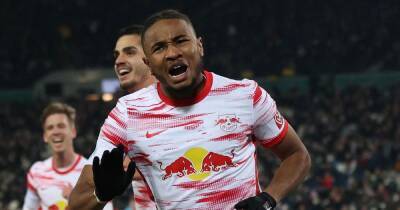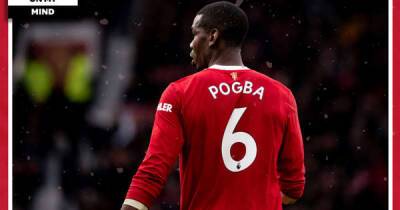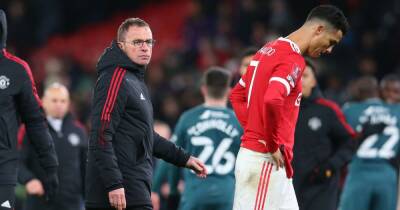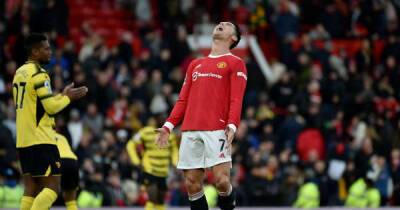Ralf Rangnick tactical change against Brighton shows Manchester United can go back to the future
Ralf Rangnick has been struggling to implement a style of play at Manchester United.
He started by trying to use his favoured 4-2-2-2 formation but quickly realised this formation didn't suit the personnel at the club.
After a few tweaks and problems along the way, Rangnick changed his tactics and moved to a 4-3-3 formation, which better accommodated the likes of Jadon Sancho on the wing and Bruno Fernandes and Paul Pogba as dual attacking midfielders.
But for Rangnick's style of play to work effectively, there needs to be a unified press throughout the team that lasts for the entire game, which United have struggled to do.
Against Brighton on Tuesday, this became more apparent than ever before.
Graham Potter has his side well drilled and you could see this when they took to the field at Old Trafford. They moved the ball around quickly and were always able to find space, which exploited United's disjointed pressing.
If United had continued with their initial plan, it is likely that Brighton would have won the game and completely dominated the home side, but Rangnick was light on his tactical feet.
And to secure a result, the German actual reverted back to one of Ole Gunnar Solskjaer's tried and tested tactics - the midblock.
Commonly deployed using Fred and Scott McTominay, who were both playing against Brighton on Tuesday night, the team hopes to stop the opposition in the midfield and then counter, which allows more flexibility for how United defend attacks.
If the team can't win it back, the midfield looks to slow the opposition's attack down so those around them can reposition and drop back. Under Solskjaer this sacrificed possession to the opposition, which happened against Brighton until Lewis Dunk was sent off.
T






